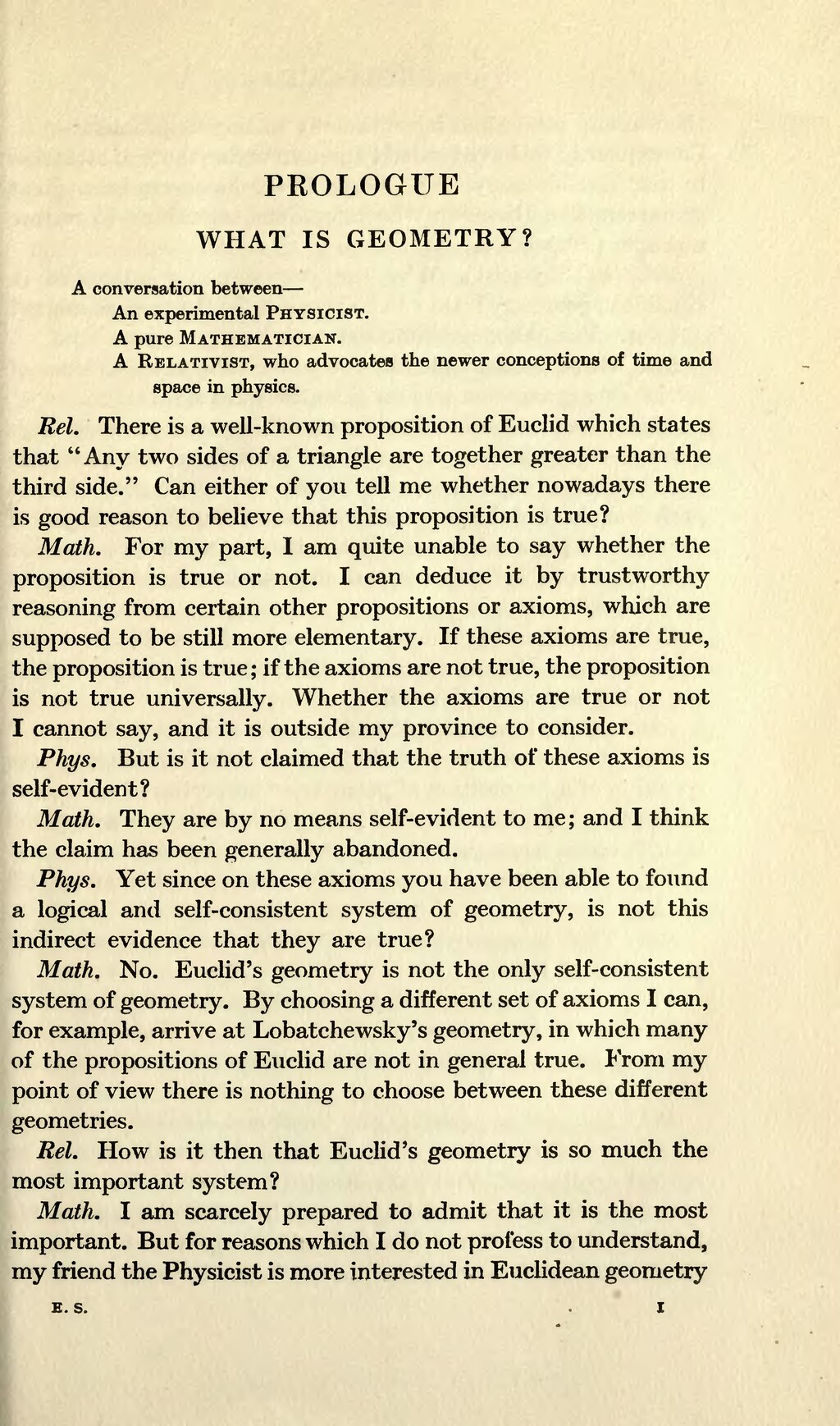PROLOGUE
WHAT IS GEOMETRY?
A conversation between—
An experimental Physicist.
A pure Mathematician.
A Relativist, who advocates the newer conceptions of time and space in physics.
Rel. There is a well-known proposition of Euclid which states that "Any two sides of a triangle are together greater than the third side." Can either of you tell me whether nowadays there is good reason to believe that this proposition is true?
Math. For my part, I am quite unable to say whether the proposition is true or not. I can deduce it by trustworthy reasoning from certain other propositions or axioms, which are supposed to be still more elementary. If these axioms are true, the proposition is true; if the axioms are not true, the proposition is not true universally. Whether the axioms are true or not I cannot say, and it is outside my province to consider.
Phys. But is it not claimed that the truth of these axioms is self-evident?
Math. They are by no means self-evident to me; and I think the claim has been generally abandoned.
Phys. Yet since on these axioms you have been able to found a logical and self-consistent system of geometry, is not this indirect evidence that they are true?
Math. No. Euclid's geometry is not the only self-consistent system of geometry. By choosing a different set of axioms I can, for example, arrive at Lobatchewsky's geometry, in which many of the propositions of Euclid are not in general true. From my point of view there is nothing to choose between these different geometries.
Rel. How is it then that Euclid's geometry is so much the most important system?
Math. I am scarcely prepared to admit that it is the most important. But for reasons which I do not profess to understand, my friend the Physicist is more interested in Euclidean geometry
